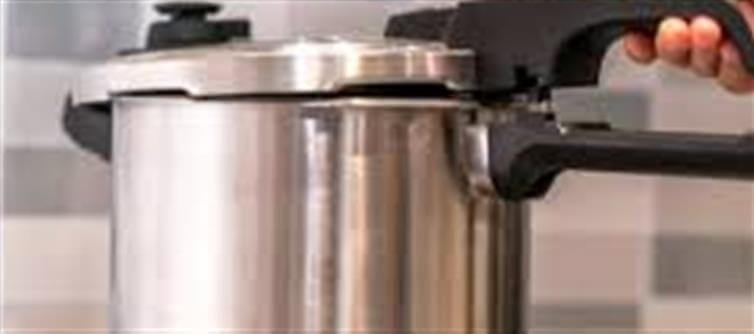
A recent viral video by Dr. Manan Vora, a minimal access orthopaedic surgeon, has left netizens buzzing. The doctor advised that old pressure cookers could pose health risks, sparking a debate about the lifespan of this quintessential indian kitchen appliance.
Pressure cookers are more than just utensils—they are everyday essentials used to cook rice, dals, curries, and even desserts efficiently. But are our decades-old cookers safe? Here’s a closer look.
1. The Doctor’s Warning: Lead Contamination
Dr. Vora highlighted that old or damaged pressure cookers may release trace amounts of lead into food over time.
Lead can accumulate in the blood, bones, and brain.
Potential health effects include fatigue, weakened nerves, mood changes, and memory issues.
Children are particularly vulnerable, with risks like slower brain growth or reduced IQ if exposed to lead from old cookers.
The takeaway: a pressure cooker isn’t just about cooking convenience—it’s also about long-term health safety.
2. Signs It’s Time to Replace Your Cooker
Not all cookers need immediate replacement, but Dr. Vora suggests specific warning signs:
Cookers older than 10 years should be discarded.
Black patches or scratches inside the cooker.
Loose lid or malfunctioning whistle.
Metallic taste in food.
Any of these signs could indicate wear and tear, which may compromise both safety and hygiene.
3. Household Reactions: tradition vs. Safety
The doctor’s advice has sparked mixed reactions online:
Some users shared experiences of malfunctioning or leaky cookers.
Others defended the durability of pressure cookers, emphasizing regular maintenance, such as:
Replacing the rubber gasket
Checking the whistle
Cleaning thoroughly after each use
For many families, pressure cookers are heirlooms, passed down through generations, making the decision to discard them emotionally difficult.
4. Netizens’ Quirky Reactions
Social media users responded with a mix of humor and practical advice:
“Meri maa ko koi nahi samja sakta hai” — highlighting how mothers often resist replacing older cookers.
“Ditch aluminium, use stainless steel. You can use it for generations” — suggesting material change as a safer option.
The conversation reflects the tug-of-war between tradition, convenience, and modern health awareness.
5. Expert Takeaway: Safety First
Pressure cookers operate under high pressure and high temperature, which makes their integrity critical for safety. Experts agree that regular inspection and timely replacement are key to preventing:
Accidental burns or malfunctions
Lead or metal contamination in food
Long-term health complications
Switching to stainless steel cookers and avoiding damaged aluminium models is considered safer and more durable.
6. Practical Tips for Pressure Cooker Maintenance
Even if your cooker is relatively new, some simple maintenance steps can extend its life safely:
Clean thoroughly after each use.
Check the rubber gasket regularly for cracks or wear.
Inspect the whistle and lid for proper functioning.
Avoid using harsh abrasives inside the pot.
Consider upgrading to stainless steel if aluminium shows wear.
These small steps help maintain food safety, flavor, and appliance longevity.
Bottom Line:
Dr. Manan Vora’s video has sparked a necessary conversation about kitchen safety and health awareness. While tradition and nostalgia often keep old pressure cookers in homes, age, damage, and potential lead contamination are real concerns. By staying alert to signs of wear and practicing regular maintenance, households can balance safety with tradition, ensuring their daily cooking remains both delicious and healthy..jpg)




 click and follow Indiaherald WhatsApp channel
click and follow Indiaherald WhatsApp channel